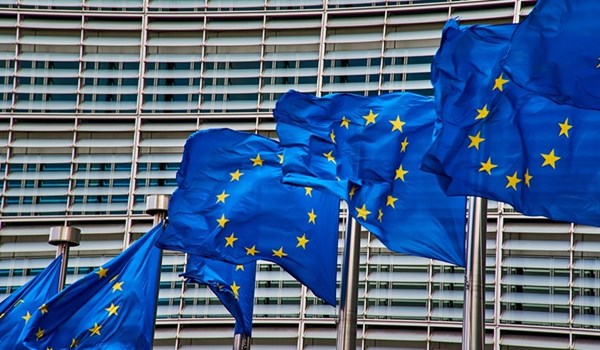The UAE’s amended anti-money laundering laws signal a “transformative shift” in the country’s approach to financial crimes and shows authorities are not “resting on their laurels”, experts said.
The move aims to ensure “compliance with international standards”, as well as to address the evolving and complex nature of financial crimes, they said.
Authorities on Sunday outlined the amended laws on money laundering and the financing of terrorism and illegal organisations. Two new bodies were established to tackle the issue: a National Committee for Anti-Money Laundering and Combatting the Financing of Terrorism and Financing of Illegal Organisations, and a Supreme Committee for the Oversight of the National Strategy for Anti-Money Laundering and Counter-Terrorism Financing.
Ibtissem Lassoued, partner and head of advisory in white-collar crime and investigations at Al Tamimi and Company law firm, said the move represented “a key advancement in the UAE’s legal and regulatory framework for financial crime prevention”.
She said the amendments “signal a transformative shift in the UAE’s approach to financial crime prevention” and show a “robust and unwavering commitment by the UAE to tackle money laundering and the financing of terrorism”.
One kilogramm fine gold bar are pictured in the Pro Aurum KG in Munich, Germany, on Wednesday, July 10, 2019. Photographer: Michaela Handrek-Rehle/Bloomberg
UAE lays down marker
The amendments come amid a broader push by the UAE to crack down on financial crimes. Last Thursday, authorities suspended 32 local gold refineries for three months for failing to follow anti-money laundering laws.
The Financial Action Task Force, the global anti-money laundering watchdog, also removed the UAE from its “grey list” this year, noting the country made some “key reforms” to its laws.
In 2021, the UAE founded an Executive Office for Anti-Money Laundering and Counter-Terrorism Financing after passing a law on the issues in 2018. Now the authorities have taken further action.
“This amendment comes as part of the continuous efforts by the UAE authorities to improve its legislative and regulatory arsenal to combat money laundering and counter the financing of terrorism,” said Mazen Boustany, partner and head of the financial regulatory practice at Baker McKenzie UAE.
“We notice that since 2018, the law and the implementing regulations are in a continuous improvement, which shows the seriousness of the UAE authorities in this respect and their desire to foster a policy of compliance and international best practice in terms of combating money laundering.”
Two oversight committees
Establishing two new committees is set to create a more structured and effective regulatory environment. Mr Boustany said the UAE was reinforcing anti-money laundering legislative infrastructure and outlined how the system might work.
“[The supreme] committee shall consider the efficiency of the strategies put in place to combat money laundering and countering the financing of terrorism and suggest measures to remedy any deficiencies,” he said.
The committee will also “co-ordinate with the different bodies and authorities to offer the necessary support to the national committee in fulfilling its mission”, he added.
Ms Lassoued said the creation of the two oversight bodies reflected a “sophisticated approach to overseeing and co-ordinating” strategies to tackle money laundering.
“The UAE’s approach includes not only the establishment of these bodies but also the appointment of a general secretariat to support their operations, reflecting a serious commitment to both regulatory rigour and operational efficiency,” Ms Lassoued said.
“These changes are intended to enhance the co-ordination between national authorities and ensure that anti-money laundering measures are both comprehensive and adaptable.”
The UAE was removed from the Financial Action Task Force’s ‘grey list’ in February after introducing key reforms. AP
Removal from grey list
The move to take the UAE off the Financial Action Task Force’s “grey list” in February was seen as a major boost to investors’ trust in the UAE. It could encourage more sustainable foreign direct investment and boost the financial sector and free zones.
Jonny Bell, senior director of financial crime compliance at LexisNexis Risk Solutions, said that after being placed on the list in 2022, the UAE dedicated “significant time, resources and policy to address any weaknesses in its framework”.
“These new oversight committees and secretary general positions demonstrate the UAE’s ongoing work and align with international standards set by leading regulatory bodies,” he said. “The positions and committees also enable the UAE to proactively address any subsequent mutual evaluation reports by FATF.”
Mr Boustany said the latest announcement was part of the country’s efforts to bolster its crack down on financial crimes. “[The amendments] come more as a strategic approach to combatting money laundering rather than technical or operational amendments to the details of the law,” he explained.
“It also shows that the UAE authorities are not resting on their laurels since the removal of the grey list, but are also learning from experience and improving the law and regulations as a result of that.”
Strong position
Ms Lassoued said the updated legislation positioned the UAE in line with “leading global practices for anti-money laundering and counter-terrorism financing” and emphasised the country’s intention to “integrate effectively into the international financial system”.
She pointed to how the two oversight bodies and the secretariat “mirrors the approaches” that have been taken by other jurisdictions that prioritise strong regulation.
“The UAE’s efforts to align with international standards, as reflected in the recent removal from the FATF grey list, demonstrate its commitment to meeting global expectations for financial crime prevention,” she said.
Tackling illicit funds
Illicit financial flows typically refer to money that is illegal whether from its source, transfer or use. They are hard to measure owing to their illegality, but are thought to have a major effect on the economic stability of a country and the global financial system.
Illicit financial flows can drain foreign exchange reserves, distort competition, inflate prices for property, lower tax receipts and cut government revenue, the International Monetary Fund said.
It added that illegal flows can undermine the rule of law, erode trust in public institutions and pose a risk to a country’s political stability.
Governments around the world have lost between $500 billion and $600 billion a year in missing tax revenue, while money laundering has been estimated at about $1.6 trillion a year, the UN said.
“Globally, illicit financial flows remain a pervasive challenge, impacting countries irrespective of their geographical location,” Ms Lassoued said.
“Strengthening the checks and balances system at both the grassroots and national level is imperative for tackling money laundering and terrorist financing and the establishment of these oversight committees through the means of this amendment is a strategic move towards this goal.”



